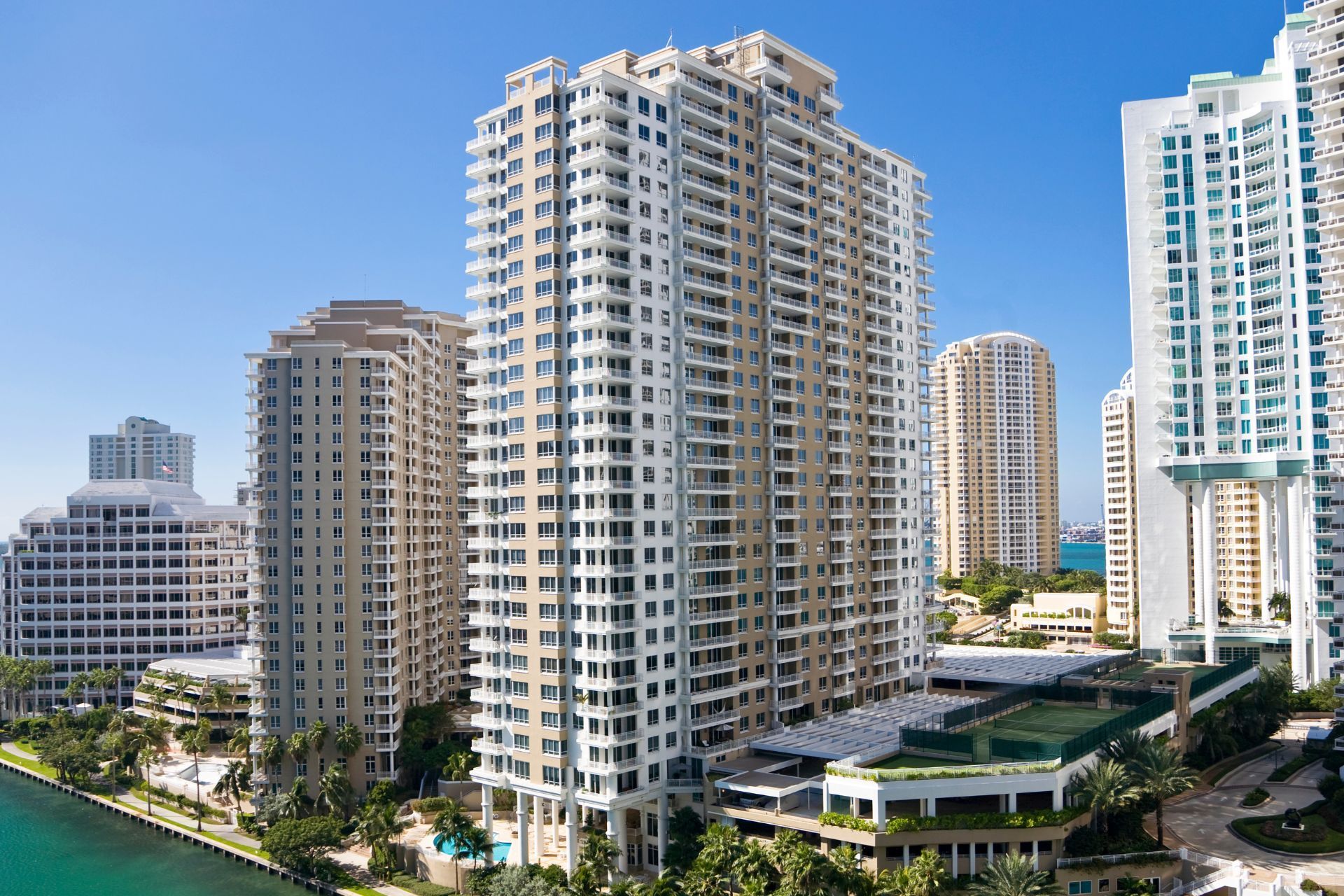See How We're Different
or call us: (203) 265-5681
Buying a condo is undoubtedly a significant achievement for most people. Now that you have a new home, you need to make sure that you do what you can to keep it safe. Condo insurance is necessary as it protects your property and possessions.
With that said, it can be slightly confusing when choosing the best policy for your condo, which is why many people make mistakes when making their decision.
Therefore, here are 8 mistakes to avoid when buying condo insurance.
What Is Condo Insurance?
Before we discuss some of the most common condo insurance mistakes you must avoid, you should be clear on what condo insurance is and what it covers.
Condo Insurance is a type of insurance that's specifically for condo owners. This insurance will provide coverage for your property and possessions in case of damage caused by an event. Therefore, the insurance provides liability coverage (this protects you if a visitor is accidentally hurt inside your condo), personal property coverage (this also includes coverage for stolen valuables from your condo), and coverage for additional improvements you make in your condo.
What Does Condo Insurance Cover?
To make this as simple as possible, here's a list of things your condo insurance most commonly covers:
- Damage caused by smoke or fire
- Damage due to an explosion
- Vandalism to your condo
- Theft in your condo
- Damage caused by hail or wind
- Accidental injury caused to a guest by slipping and falling
- Problems in your condo's plumbing such as burst pipes
- Damage to the lighting system in your condo
- Alternate living expenses in case there's severe damage to your condo
Now that you know what condo insurance covers, you must also know what it doesn't cover. Here's a list:
- Damage caused to the condo by earthquakes
- Damage caused to the condo by floods
- Any kind of effects caused by nuclear hazards
- Wear and tear to the condo
- Intentional injury caused to any person inside the condo
- Damage caused by rodents, insects, and birds
- Damage caused by sewage problems
Now that you have a good understanding of what condo insurance is and what it covers, here are some details on 8 common condo insurance mistakes you must avoid when buying it for your condo.
1. Ignoring the Deductible Costs
A common mistake that many people make is that they only look at the cost of the premium when selecting an insurer. However, the problem with a lower premium is that you have to pay a higher deductible. Therefore, you may take a hit to your finances if your condo is severely affected when making a claim. In addition to that, the hit on your finances may make it difficult for you to wait until your condo insurance policy pays out.
What you should do instead is talk to your condo insurance agent about which policies are the most affordable and have a relatively low deductible. Try to be as transparent as you can about your financial situation so that they can help you reach a decision that's better suited for you. You can remove some unnecessary coverages to lower the price of your premiums. However, discuss this with your agent so that you don't end up paying for something your insurance doesn't cover. You can also review the discount options your insurer has—this can help reduce the cost of your insurance premium.
2. Choosing Cash Value Reimbursement Instead of Replacement Cost
A common mistake that condo owners make is that they choose a cash value reimbursement instead of replacement cost in the case of a natural disaster. With a cash value reimbursement, you'll receive the original amount that you paid for coverage of an item in your condo. However, the depreciation value will be subtracted from the original amount. The depreciation amount will depend on the claimed item's life expectancy.
Selecting this option tends to be a bad idea because the reimbursed amount is most likely never enough to replace the item with a new one. Consider the example of a damaged air conditioning unit in your condo. The price of a new unit is possibly much higher than it was years ago due to inflation.
Cash value reimbursement may help you lower your insurance premium costs, but you may end up paying more money than you would before. So, you should speak to your insurance agent about what options you have for replacement costs and for lowering your premium costs.
3. Choosing a "Bare Walls" Master Policy
As mentioned earlier, a "bare walls" masters policy only covers damage to the walls, ceiling, and floors of your condo. It won't cover architectural details in the condo, and the bathroom and kitchen floors and fixtures.
Instead, you should look for an "all-in" insurance policy. This policy will ensure that items, fixtures, and structures, such as plumbing and wiring in your condo, are also covered. An "all-in" policy may be more expensive, so you may have to sacrifice some coverage to stay within your budget.
4. Skimming through a Policy when Signing
Another one of the most common condo insurance mistakes that people make is that they don't read a policy thoroughly before signing it. Therefore, you may miss out on possible mistakes or omissions in what your insurance policy covers, which may cost you in the future.
You should read the entire policy twice, as you may not catch some errors the first time you read it. You should also ask your insurance agent questions about whatever you don't understand about the policy. Look at the specifics written about each coverage as well. For example, if the policy says that theft is covered, make sure to take a look at what types of theft and items are included in the policy. Make sure that your condo insurance policy includes liability insurance and personal property coverage as well. Review the details provided for each.
If you realize an error after you've signed on it, you'll be held responsible for the details on the policy's coverage, even if it's not what you agreed upon earlier with your insurance agent. So, take your time with reviewing your policy and make sure your insurance policy is 100% accurate before you agree to it in writing.
5. Selecting a Policy with Insufficient Coverage
We cannot stress how important it is that you don't make the mistake of selecting a condo insurance policy with insufficient coverage. A common reason for this mistake is that condo owners don't estimate their possessions' value accurately. Another reason is that they don't want to pay coverage for events that have a low chance of occurring in their residential area. As a result, they end up paying a lot when an event that their policy doesn't cover, such as a burglary or natural disaster, occurs.
Selecting an "all-in" policy is an excellent solution because it covers most options regarding condo insurance. However, this option is expensive, so you can get in touch with your insurance agent and select which coverage you want to include and remove. Try to get in as much coverage as you can while remaining in your budget. You can also consider supplemental coverage options that include flood insurance or a personal articles policy.
6. Using Price Only to Decide on an Insurer
Whether you're getting condo insurance or any other kind of insurance, don't select an insurer based on premiums. Many insurers offer their policyholders low premiums, which leads people to believe that other insurers, which are relatively more expensive, offer similar coverages. However, cheaper insurers may not offer some coverages, or the quality of their services may not be as good as some of their more expensive competitors.
To ensure that you work with the best condo insurer in your budget, you must do a bit of research on potential insurers. Read online reviews to get an idea of what the insurer's clients think of the quality of the condo insurance policy. You can also ask some residents in your condo complex or friends and family members for recommendations on condo insurance.
You want to make sure that you select a trustworthy insurer that offers high-quality services and is still in your budget. Also, the insurer should provide you with a personalized experience when selecting the coverage in your policy. Doing so will significantly reduce the chances of running into problems in the future.
7. Thinking that Your Renters Will Pay for Condo Insurance
If you're planning to rent your condo to tenants, one of the most common condo insurance mistakes that you must avoid is thinking that your renters will pay for condo insurance. Most likely, they'll be paying renters insurance instead, considering the property is not theirs. In most cases, renters insurance doesn't have the same coverage as condo insurance. Therefore, you won't be able to make a claim to your insurer if there's damage to your condo because of vandalism, or specified natural disasters. This way, you'll end up paying a lot of money on repairs.
You must talk to your insurance agent about an HO-6 condo insurance policy. This way, you'll have liability coverage and personal property coverage. Therefore, your condo insurance will make up for what your tenant's renters policy doesn't include.
8. Thinking High Condo Association Fees Are Bad
While high condo association fees can put a strain on your finances, there is some benefit to paying those fees. These fees will help cover the costs of any damage or vandalism done to the outside of your condo and the areas surrounding it. It may also cover damage to the sidewalks and parking lot in the shared condo space. This way, you can help keep the community of your condo complex in good condition. With that said, these fees can be challenging to manage if you don't have a high budget. Therefore, make sure to select a coverage plan that keeps your property safe and is well within your budget.
What Affects the Premium for Your Condo Insurance?
The premiums for your condo insurance differ from one insurer to another and are affected by other important factors. While you can expect to pay about $100 to $400 every year for your condo insurance, the exact amount will depend on the following factors:
- The location of your condo, i.e., the area it's situated in, and the state you're living in
- The materials used to construct your condo
- How much coverage your HOA's insurance policy has
- The coverage options you select
- The deductible amount you must pay
How Does Condo Insurance Differ from Homeowners Association (HOA) Insurance?
Condo Insurance differs from Homeowners Association (HOA) insurance in a few important ways. You must remember that you don't own the building of your condo. Instead, you only own your unit, which includes the appliances, cabinets, lighting, and other parts of the interior. Therefore, if you have a "bare walls" HOA's master policy, it won't cover the cost of damage to the interior of your condo. The interior also includes electrical wiring and plumbing as well.
HOA's insurance doesn't cover theft of items in your house, which includes appliances, furniture, your computer, and much more. If you're looking to keep your possessions safe along with your property, you must opt for a condo insurance policy that covers those items as well. In addition to that, HOA won't cover accidental injury to visitors in your condo.
An HOA's master policy covers damage to the exterior of the building of your condo. Also, it covers accidental injuries that a visitor sustains while in a common area of the condo complex, and it covers any damages to those areas.
Last Few Words on Common Condo Insurance Mistakes to Avoid
Buying condo insurance is a significant investment, so you must take your time to select the most suitable condo insurer in your budget. A little bit of research and discussions with your insurance agent can help you avoid common condo insurance mistakes people tend to make.















